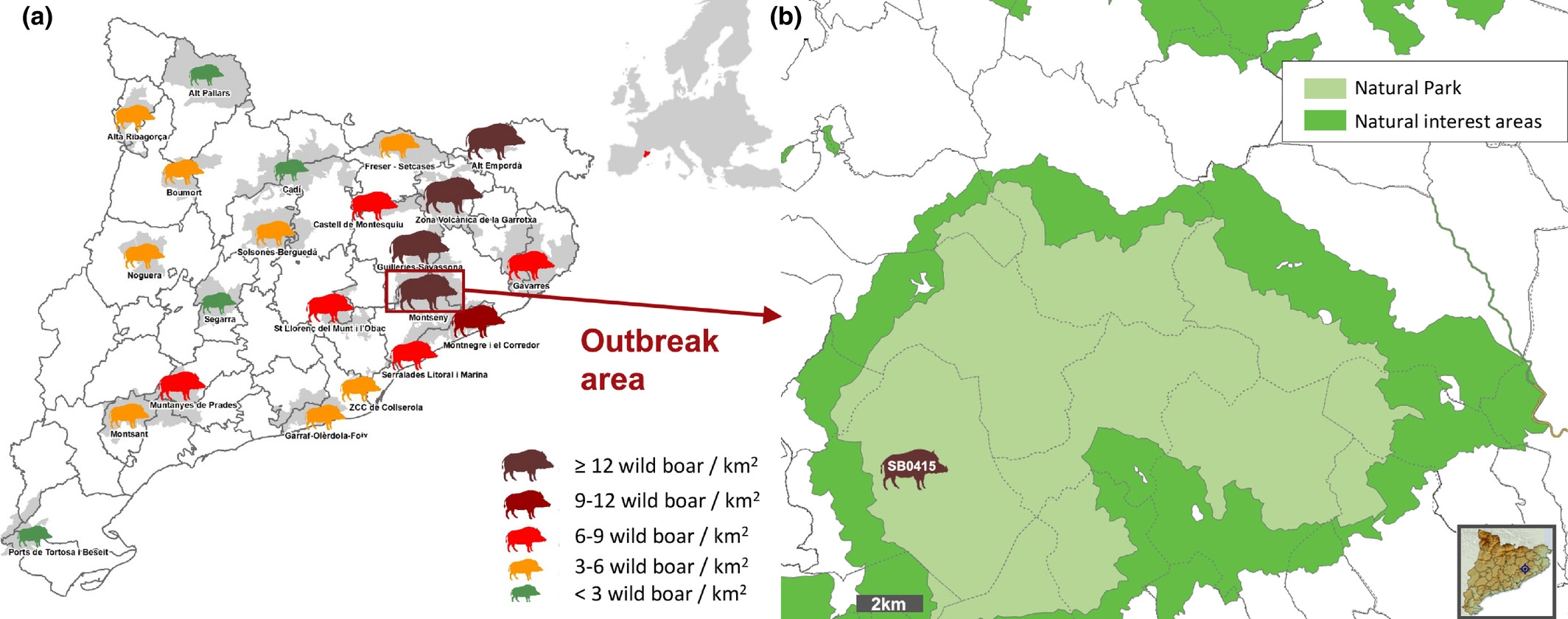
A study carried out by IRTA-CReSA, the UAB, and the Department of Agriculture, Livestock, Fisheries and Food of the Generalitat of Catalonia (DARP), with the collaboration of researchers from the United States Department of Agriculture (USDA), has verified that the wild boar populations of the Montseny Natural Park (Barcelona) are capable of maintaining tuberculosis in their population and transmitting it to domestic animals, such as goats.
Tuberculosis is a disease shared between humans and animals caused by a group of bacteria that are part of the complex name Mycobacterium tuberculosis, including Mycobacterium tuberculosis, which mainly affects humans, or Mycobacterium bovis and Mycobacterium caprae that mainly affect animals. The latter bacterium is the one that has been isolated in wild boars after studying a total of 278 animals for 5 years (2015-2020).
The study, published in the journal Transboundary and Emerging Diseases, demonstrates for the first time the existence of TB transmission between wild boars and goats without the participation of cattle, although the latter are usually considered the main animal host of tuberculosis. Thanks to sequencing analyzes of the bacterium's genome, researchers have confirmed that the same strain of bacteria isolated in wild boars also causes tuberculosis in a herd of goats in the same area and that with a high degree of probability wild boars would have been the cause outbreak.
The study focused on the Montseny Natural Park, where there is a high density of wild boar populations of around 12 individuals per square kilometer. Researchers point out that in these high-density areas is where there is a greater risk that a disease will persist and be transmitted to other animals, as in the case of tuberculosis or African swine fever.
The Animal Health Research Center (CReSA) of the Institute of Agri-Food Research and Technology (IRTA) together with the DARP, are members of the INNOTUB animal tuberculosis research network supported by the Interreg-POCTEFA program.
Article: